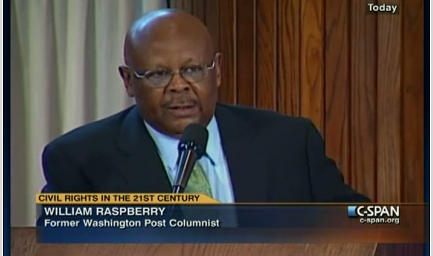The Question We Should Be Asking
William Raspberry argues that we’re focused on the wrong question:
The reason I can’t get worked up about the question that dominated last week’s hearings before the National Commission on Terrorist Attacks Upon the United States is pragmatic. Suppose we had been pretty sure that the al Qaeda network had something in mind, but we weren’t sure what. What would have been an appropriate response? To heighten security at the World Trade Center, which, after all, had been targeted in a terrorist attack in 1993? To step up security at all very tall buildings in America? To intensify security everywhere?
Even supposing our intelligence suggested something involving airplanes, what might we have done? If we knew flight numbers, we could cancel those flights (or run every passenger through a particularly thorough screening). But without that specific knowledge, should we have shut down certain airports? All airports? For how long?
The point isn’t original but apparently need repeating.
Raspberry thinks that a far more interesting question is, “Why are we in Iraq?” While, again, that’s hardly an original question, it is likely to be the one that decides the next election.
And even as I ask the question, I have to acknowledge that the answer doesn’t really matter — for two reasons.
First, I don’t imagine that President Bush, no matter how misguided I believe him to be, would have acted as he did in Iraq if he hadn’t truly believed it to be in America’s interest. Second, just as the question of who knew and failed to act before Sept. 11 has become largely irrelevant, so has the question of how we wound up in Iraq.
The fact is, we’re there — and no one I know would suggest that we simply turn and leave the Iraqis to the chaos we’ve largely created.
The real question (though I’d love to see it preceded by an honest confession or two) is: How the devil do we get out?
My guess is that the swing voters–the cab drivers, if you will–have pretty much the same sense of the situation as Raspberry. If President Bush and his team can answer these questions satisfactorily, he’ll still be in office come February. Otherwise, he won’t.




